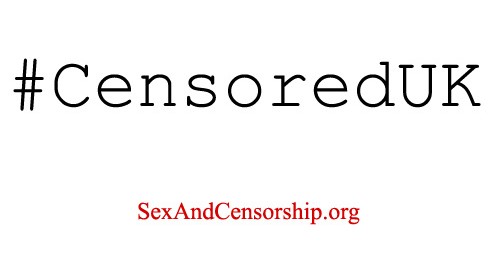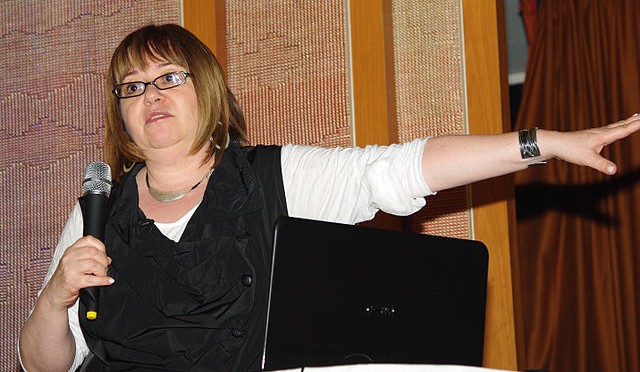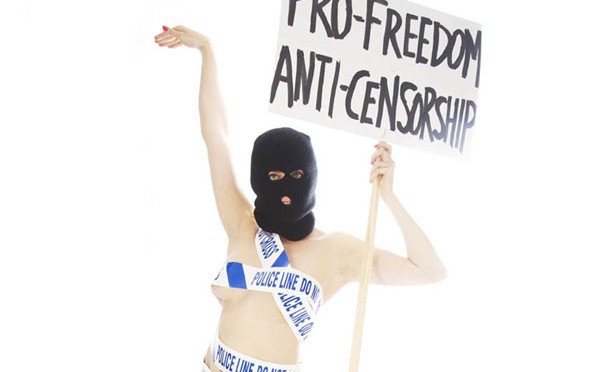First the the government banned ‘rape’ porn without properly defining it, meaning that people who are engaged in consensual acts can now be prosecuted, now there are concerted attacks by councils on sex clubs.
Fantasy Video, a cinema showing pornographic films to its clientele was closed down by Islington last year. A new business, Mr B’s, a private members film club that also shows adult films, opened in the same premises and is now on Islington’s hit list. Also in their sights are Oscar’s, a cinema catering to the gay community, and Abcat, a cinema in King’s Cross.
A central complaint appears to be that whilst on a visit to assess how compliant the Abcat cinema was with its licensing conditions, a pass was made at the inspector. Gosh, how awful! If this is a reason to close a sex cinema, then we must surely also close all of restaurants, pubs and bars in the borough – after all, people have passes made at them every night in these.
It’s worth noting here that Islington first granted licences to sex cinemas after eleven men died in a fire at an adult cinema in 1994, when the council’s original policy of not granting licences drove premises to operate underground. A disgruntled man who was not allowed in set fire to the premises. Because there was no licence, and no method of obtaining one, no one had enforced clear exits or other fire prevention measures.
Whatever one’s views on adult films, we should ask ourselves whether it is right for a council to try and enforce some sort of moral code even if it means that they will knowingly revert to a policy that the council itself has acknowledged played a part in people’s deaths.
It is also interesting to note that the attack on these establishments is being led by Labour councillor, Paul Converey, who also opposed the renewal of a licence for the Flying Scotsman pub in King’s Cross because, amongst other things, he ‘regularly spotted exotic dancers outside on the street smoking with very slight clothing barely covered by overcoats or other coverings’. This of course could be rephrased as, some strippers wearing overcoats and other clothes were outside having a smoke. That doesn’t sound as salacious. Let’s consider the further implications of this statement. He wants to close down a strip club because in part he thinks that the women – when not stripping – are not wearing enough clothes. Again, perhaps he should visit one of the pubs in Islington this summer. I am sure he will find much ammunition to have them all closed down on that premise. In any case, his comments are not far off those of the Canadian police officer who prompted the slut walks a few years back. Why should a councillor be able to proscribe how a woman dresses?
Councillor Converey claims that closing the sex cinemas down is common sense. Put another way, endangering the lives of people who are causing no harm is common sense. Perhaps we should do away with Health and Safety all together? Would that be common sense?
-
Strip clubs have an ‘adverse effect on community safety’. Really? How so? He cites no evidence. Perhaps that is because there really isn’t any?
-
It is unacceptable to have such clubs near schools? This is, of course, a nonsense. For a start most do not operate during school hours, then there is the fact that people under 18 years of age are not allowed in, and finally there is no evidence to suggest that having a strip club or an adult cinema near a school or church has any impact on the lives of local schoolchildren. This is nothing but a rather pathetic attempt to conflate sexual freedom with paedophilia. This sort of false association seeks to polarise moderate people who, rightly, abhor anything that may corrupt those who are under the age of consent. It is not akin to paedophilia, however, and to suggest that it is is itself morally bankrupt.
-
That he is taking the actions he is taking in support of Christian and Islamic voters in his area – to me that is appalling, as it either implies that those who do not subscribe to an Abrahamic religion have fewer morals and fewer rights or that subscribers to Abrahamic religions are a significant vote and should, therefore, be pandered to (much the same thing, really).
Lest anyone be in any doubt about Islington’s policy, he states it clearly in his letter: ‘It is the policy of LB Islington to reduce to zero the number of establishments licensed for sex.’ Note, he does not identify a single type of venue. As we have seen, the targets are sex cinemas and strip clubs so far, but that is just the beginning. We can expect swingers clubs and fetish venues to be next on the list.
Mr Convery further claims that ‘The simple fact is that, over the last few years, Kings Cross has changed considerably – and for the
better. Scores of new businesses and hundreds of new jobs have arrived in the area.’ This, he cites as a reason to close down legitimate businesses that already operate in the area, but those new businesses that he cites have not been deterred from moving in to the area in spite of there being sex cinemas, strip clubs, and other sex entertainment venues there. That in itself rather puts the lie to his claim.
So far this article has concentrated on Islington, but there is more. Spelthorne Borough Council has ordered the closure of Kestral Hydro, a nudist club in Stanwell Moor, near Heathrow, saying that a nudist club is not appropriate use of green belt land as it urbanises it. Does this mean that people can only strip in the city? Oh, no, Islington have decided that’s not allowed. Not all Spethorne councillors agree with the main policy. Stanwell North councillor Spencer Taylor has said: ‘There have been no objections from residents and green belt can also be used for recreational purposes.’ Given this, it seems odd that the council should try to close a club that is not harming any one and about which there have been no complaints in the ten years it has been operating.
So, what can you do?
-
On 2 June 2014, an appeal will be heard at the Highbury Magistrates Court for Oscar’s cinema. Simply showing up and sitting on the side in support of the plaintiff (the cinema owner, Goerge Papworth) will, if nothing else, send a message to Islington and the court that closing down all sex based establishments is not supported by all.
-
Write to councillor Convery at [email protected] and tell him that you do not support his actions.
-
Sign the petition to save the naturist resort Kestral Hydro near Heathrow. The petition can be found here.
Note, the author of this post is aware of other moves to shut down swinger’s clubs, fetish clubs, gay bars, and sex cinemas. Can it be long before hard won freedoms are also under threats, such as the right for men and women to enjoy anal sex and the right for same-sex couples to be treated as equals?
It’s hard to stand up and be counted because – even in this day-and-age – you can lose your job for being open about your sexuality, but if people do feel that they can be object then please do take one of the above actions.




